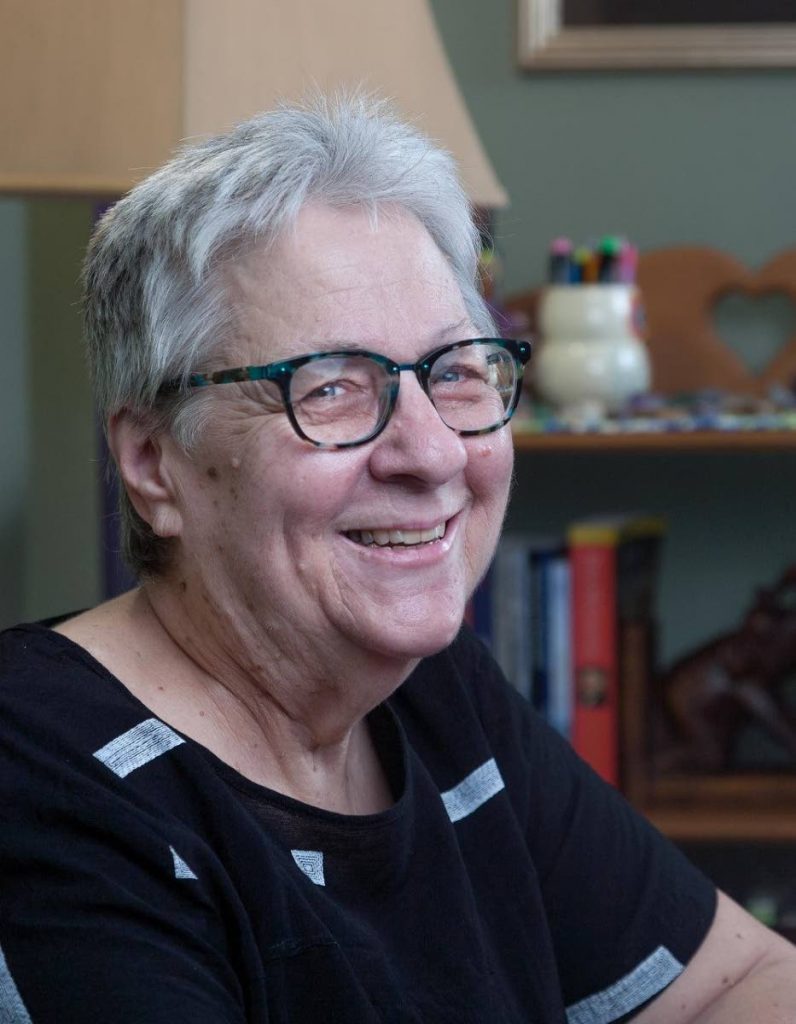Finding my voice

I’VE NEVER been interested in tennis, but I gratefully accept women’s tennis champion Naomi Osaka as the champion of introverts. The tennis star’s recent stand at the French Open, where she announced she would not grant interviews for mental health reasons, surely resonated with every introvert. From our first glimpse of Osaka, crying at a press conference after Osaka beat Serena Williams in her first big tennis tournament, we knew she was one of us.
We introverts understand how success and attention combine to bring angst and depression. Extroverts never understand how crowds, social gatherings and speaking in public deplete our coping skills. I always knew I was an introvert. A perfect Friday or Saturday night for me is curling up to read a good book or writing a book in my study. Parties and social gatherings don’t interest me. They make me feel awkward and uncomfortable. My thoughts gravitate towards how to escape. When I do, I often spend days in bed from debilitating fatigue.
For years, I thought something was wrong with me. I thought people are supposed to be outgoing and social. Then, about five years ago I read the book Quiet: The Power of Introverts in a World That Can’t Stop Talking by Susan Cain. It changed my life.
I learned that extroverts are energised by social gatherings, but introverts find them emotionally depleting. We feel overstimulated by crowds. Introverts enjoy the creative process, but agonise over any attention for it. We measure our words when we talk.
When I worked as a librarian and teacher, schools would often ask me to visit and speak to students. I declined explaining how the thought of speaking engagements gave me migraines so severe I couldn’t get out of bed for days.
One day, Cindy Khan, the vice principal at ASJA Girls San Fernando, asked me to deliver the school’s commencement speech. She would not take no for an answer. “You can do this,” she said.
“She’s not going to let me out of this,” I told my library assistant, Nicha Cassiram.
“You should do this,” Nicha said.
At the Caroni Police Canine Section where I worked every weekend doing research for a book, I told the sergeant in charge, Larry Millette, about my plight.
“I can’t drive to San Fernando,” I said. “I get hopelessly lost down there.” I was also on a walker for a knee injury and thought that was a good excuse too.
Sgt Millette said, “I will take you.”
No one would let me back out. I wrote a speech based on a chapter from David McCullough’s book Brave Companions: Portraits in History. I chose to speak about Harriet Beecher Stowe, who wrote Uncle Tom’s Cabin, the novel about slavery. Legend has it that when president Abraham Lincoln met Stowe, he had said, “So you’re the little lady that started this big war.”
I wanted to show students that we can learn from everyone – even those who are most different from us.
Nicha made me stand before the empty podium in the theatre at my school and practise my speech. She applauded at the end.
On ASJA Girls’ graduation day, I was so flustered, I decided to move my car before Sgt Millette arrived at my house. I drove over my walker. It was mangled and stuck under the car when he arrived.
Many speakers preceded me that day. Cindy Khan kept me occupied. Just before going on stage, she asked, “Would you mind saying ‘assalumu alaykum’ before you start your speech?”
I said that was fine.
Finally, I stood before that packed auditorium and when I said, “assalumu alaykum,” everyone answered in unison “alaykum assalumu.”
All fear and anxiety vanished. The audience listened and laughed and Sgt Millette stood by a door in front of the audience smiling and giving thumbs up.
After the speech, I realised I had no migraine. I can’t say I ever learned to enjoy public speaking, but I knew I could do it after that day. Crowds still wear me out. I still end up depleted emotionally and physically. Years later, I had to talk myself into going to every one of my Wishing for Wings’ prison debates. All the way to the debate I thought, “I could just say I’m sick and can’t come today.” But I always forced myself to go. I got through them. I am still an introvert who feels more comfortable alone, but I navigate my way through a world made for extroverts. It’s not easy, but I persevere. I don’t feel guilty any more.

Comments
"Finding my voice"